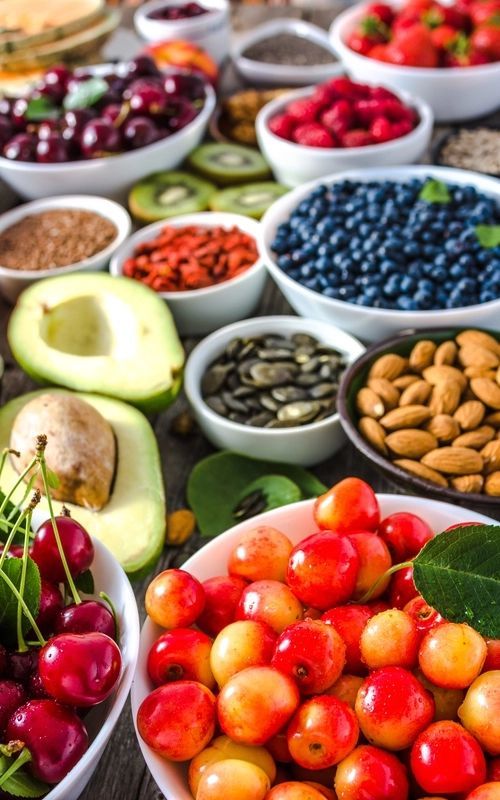Anti-inflammatory foods include foods high in omega-3 fatty acids, such as avocados, seafood, nuts, eggs, and chia seeds.
Fresh fruits and leafy green vegetables are also high in anti-inflammatory compounds, as well as antioxidants.
If you suffer from the daily impact of chronic pain, it can seem like an uphill battle to find solutions for long-lasting relief. While there is no one-size-fits-all or quick-fix solution, making healthy changes to your diet is one of the most effective ways to reduce symptoms of chronic pain and improve your overall health.
When it feels like your body is betraying you, it’s easy to feel down on yourself and have negative thoughts. However, our perceptions and our thoughts have powerful impacts on our reality. Talking to yourself constructively and being gentle with yourself can help you find acceptance of your condition and lessen the mental turmoil and stress of living with chronic pain. Decreased stress often means decreased pain, so try to replace resentful or angry thoughts by being kind and patient with yourself.
Making positive changes to your diet can also help chronic pain by reducing weight. Being overweight can put additional stress on joints, which can lead to pain and discomfort. A diet high in protein, fiber, and healthy fats can help you feel fuller for longer. By eating a healthy, balanced diet and losing weight, you can reduce the amount of stress on your joints and decrease your chronic pain symptoms.
Experiencing chronic pain can feel extremely lonely. Looking around at the others in your life continuing on as usual while the effects of chronic pain wear you down can make you feel like an outsider. Reach out to support groups, a therapist, or a close friend or family member to talk about your experience. This can help you process what you are going through and give you additional support.

Anti-inflammatory foods include foods high in omega-3 fatty acids, such as avocados, seafood, nuts, eggs, and chia seeds.
Fresh fruits and leafy green vegetables are also high in anti-inflammatory compounds, as well as antioxidants.
Processed foods are often high in unhealthy fats, refined carbohydrates, and added sugars, which can increase inflammation and contribute to chronic pain.
Plant-based diets, such as a vegan or vegetarian diet, have been shown to reduce inflammation and improve chronic pain symptoms in some individuals. You don't need to become vegan or vegetarian, but eating more plant-based foods can potentially help reduce chronic pain and inflammation.
Proper hydration can help reduce chronic pain by lubricating your joints and muscles. Dehydration can lead to increased muscle tension, which can exacerbate pain. Try to avoid sugary drinks and focus on increasing your water intake throughout the day. Your body can also interpret dehydration as hunger. Drinking enough water makes you less likely to overeat, and you may have an easier time keeping your weight in check.
Both alcohol and caffeine can negatively impact the body when consumed in excess, increasing chronic pain symptoms. Consider either limiting or entirely removing these substances from your diet.
It's important to remember that every body reacts to food differently. By experimenting with healthy diet changes, you can work to reduce chronic pain and improve overall health and well-being.
At Chronic Care of Richmond, we focus on making lasting dietary changes that reduce inflammation and improve overall health by treating the root causes of your chronic pain, not just the symptoms. To schedule an appointment, contact us today!



LOCATION
8639 Mayland Dr #105, Henrico, VA 23294
PHONE
BUSINESS HOURS
Mon, Wed, Thu, Fri - 9 am to 5 pm
Tuesday - 9 am to 1 pm